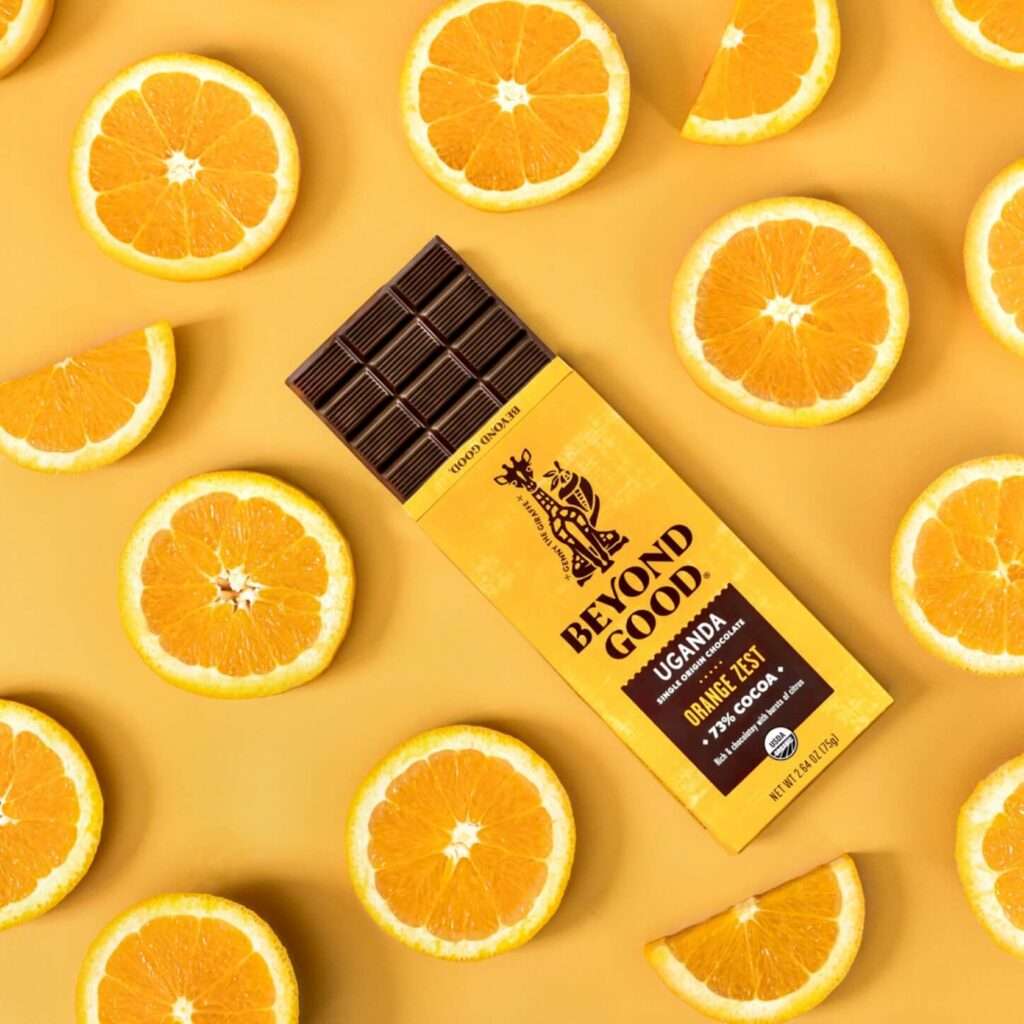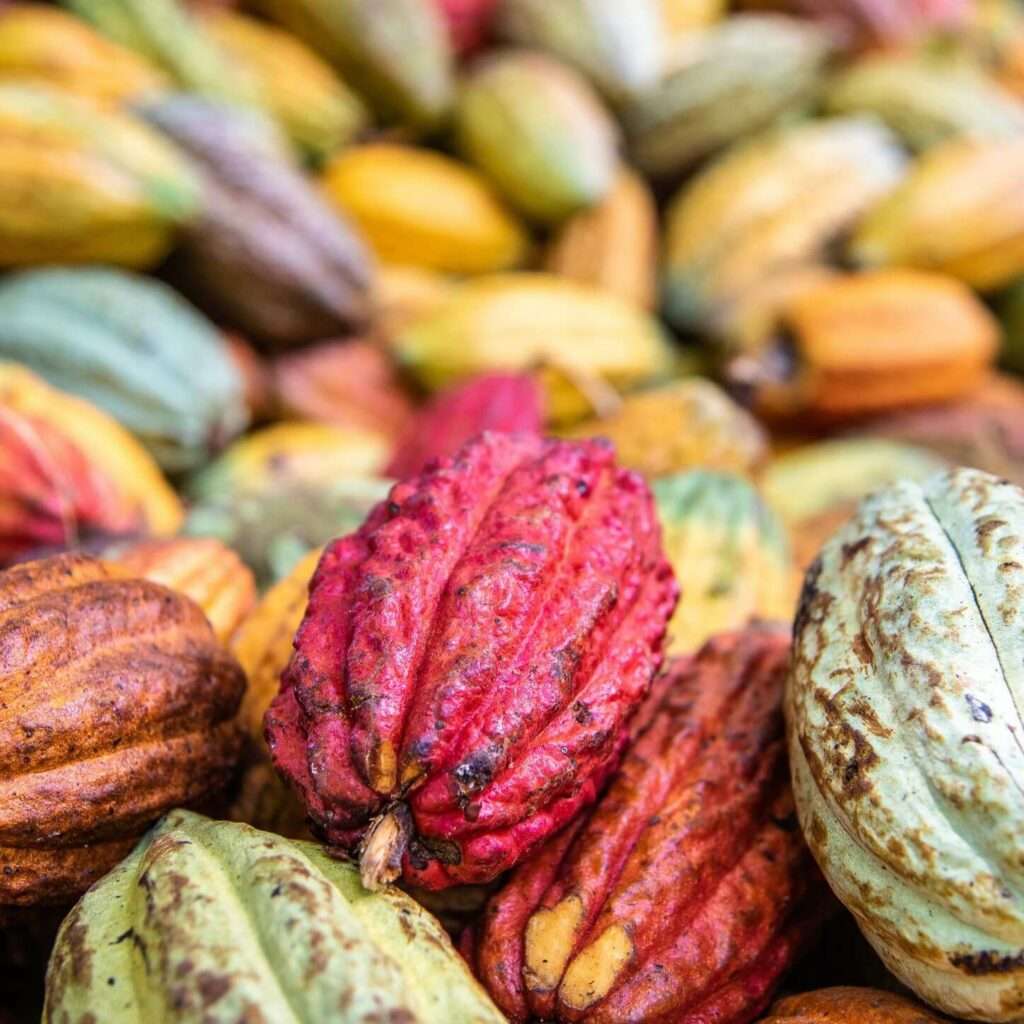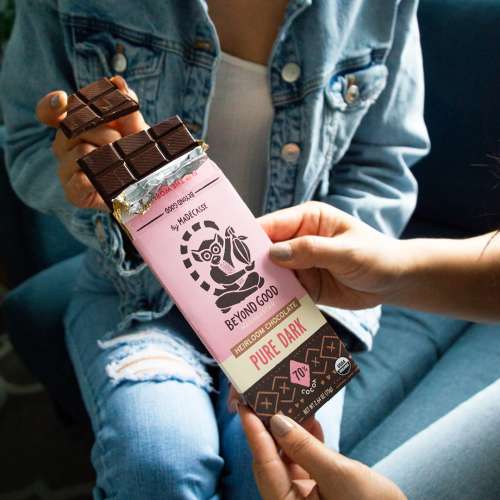Beyond Good’s chocolate is more than just a sweet treat — it’s sustainable chocolate on a mission.
Founded in 2007, Beyond Good is working to change the world one sustainable chocolate bar at a time. The Brooklyn-based brand carries a variety of indulgent dark chocolate bars in flavors like Orange Zest, Toasted Coconut, Salted Caramel, and Toasted Hazelnut.
But one thing sets the company apart from its chocolatier counterparts: its supply chain is 100 percent traceable and fully transparent. The company prioritizes the safety of people, animals, and the environment by sustainably harvesting and producing all of its chocolate at origin in Africa. Meaning, you can indulge in the brand’s luscious chocolate bars — guilt-free.

How does it work? In a conventional chocolate industrial supply chain, millions of cocoa farmers — most of whom live in poverty — harvest the cocoa beans. Collectors transport the beans to exporters who pass them along to importers to be brought to America and other parts of the world. Chocolate is then produced in factories, packaged, and then shipped to stores and other establishments where chocolate is sold.
Beyond Good’s supply chain is far more simple: farmers in Madagascar and Uganda — both largely untapped cocoa regions — sell their cocoa directly to the company. Chocolate is produced at the company’s factory in Antananarivo, Madagascar, before it’s shipped to consumers.
“Beyond Good is on a mission to change the way the world experiences chocolate from the cocoa farm to the customers,” Tim McCollum, the company’s founder and CEO, tells Ethos.
“Through manufacturing at origin in Africa and working directly with our farmers,” he adds, “we are able to address and avoid the biggest issues facing the industrial cocoa supply chain.”
Single-origin chocolate
Chocolate is one of the most unsustainable food products on the planet. It takes about 400 cocoa beans to make just one pound of chocolate. And 70 percent of the world’s cocoa beans are sourced from West Africa, predominantly from the Ivory Coast, Cameroon, Ghana, and Nigeria.
Cocoa plantations are water-intensive, and the industry is rife with illegal deforestation contributing to the loss of wildlife, water and air pollution, and soil contamination. The industry also exploits workers, using child and slave labor and paying unfair wages.
“One of the biggest issues in the chocolate industry is farmer poverty,” explains McCollum. “By making chocolate at the source and working directly with farmers, we’re able to pay them significantly more than the industry average.”

Traditionally, cocoa farmers earn less than $1 a day. By removing the middle-person and sourcing chocolate at origin, Beyond Good is able to pay more than double this rate — about $2.44 per kilogram, McCollum says. This amounts to about $2,029 a year, which is more than three times Madagascar’s average gross domestic product per capita of $495.
By opting for single-origin chocolate, the company is also able to promote land and wildlife conservation.
“We’ve pioneered cocoa agroforestry to help regenerate the forest and provide sanctuary for five species of endangered lemurs, birds, and the Madagascar flying fox,” McCollum explains. “The result is a beautiful canopy, sustainable crops, and a home for the endemic wildlife population that has borne the brunt of Madagascar’s disappearing forests.”
In 2021, Beyond Good made 2.8 million chocolate bars — up more than one million from 2020 and two million the year before that — providing a safe space for five lemurs and employing 105 Malagasy workers full-time. “Each year that number grows so does our impact,” the company website reads.
Following the opening of its first factory in 2019, the company plans to have a second facility up and running in Uganda by mid-2024.
For those looking to enjoy a bite-sized, extra-sweet treat, the brand recently launched its new 12-gram Single Serve Chocolates, which are available in Salted Caramel with 73 percent cocoa and Pure Dark with 70 percent cocoa.
Related on Ethos:


